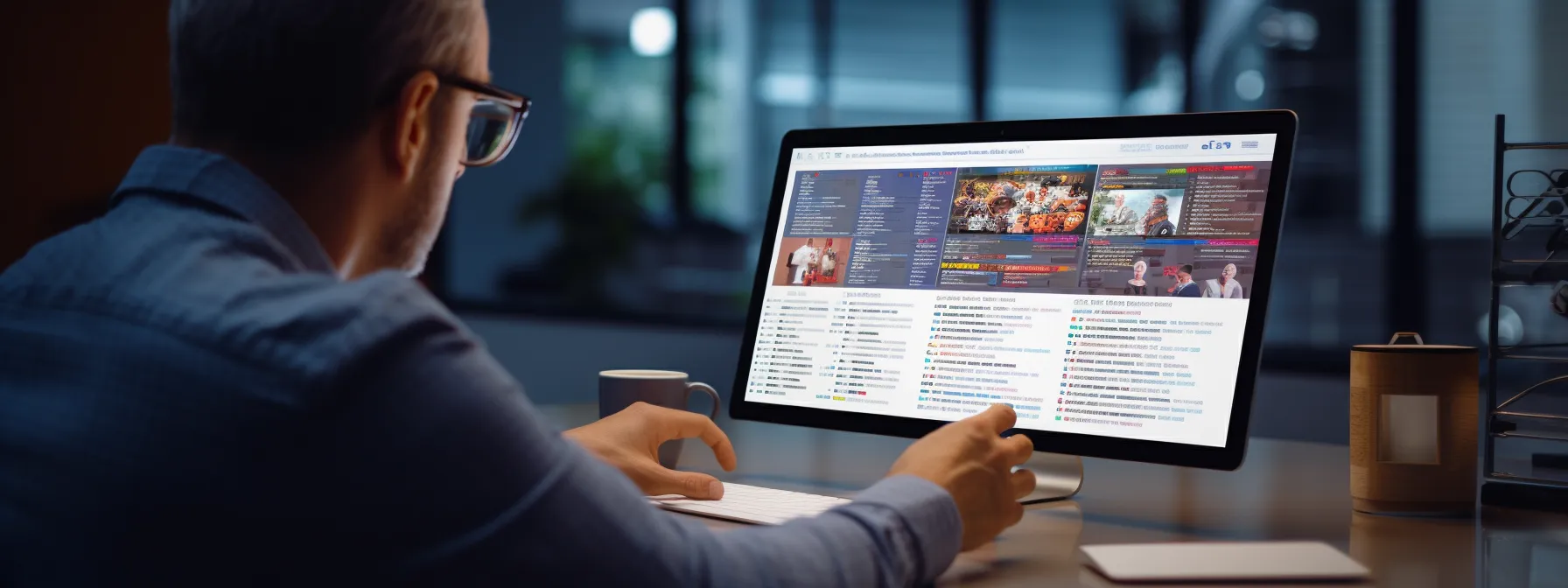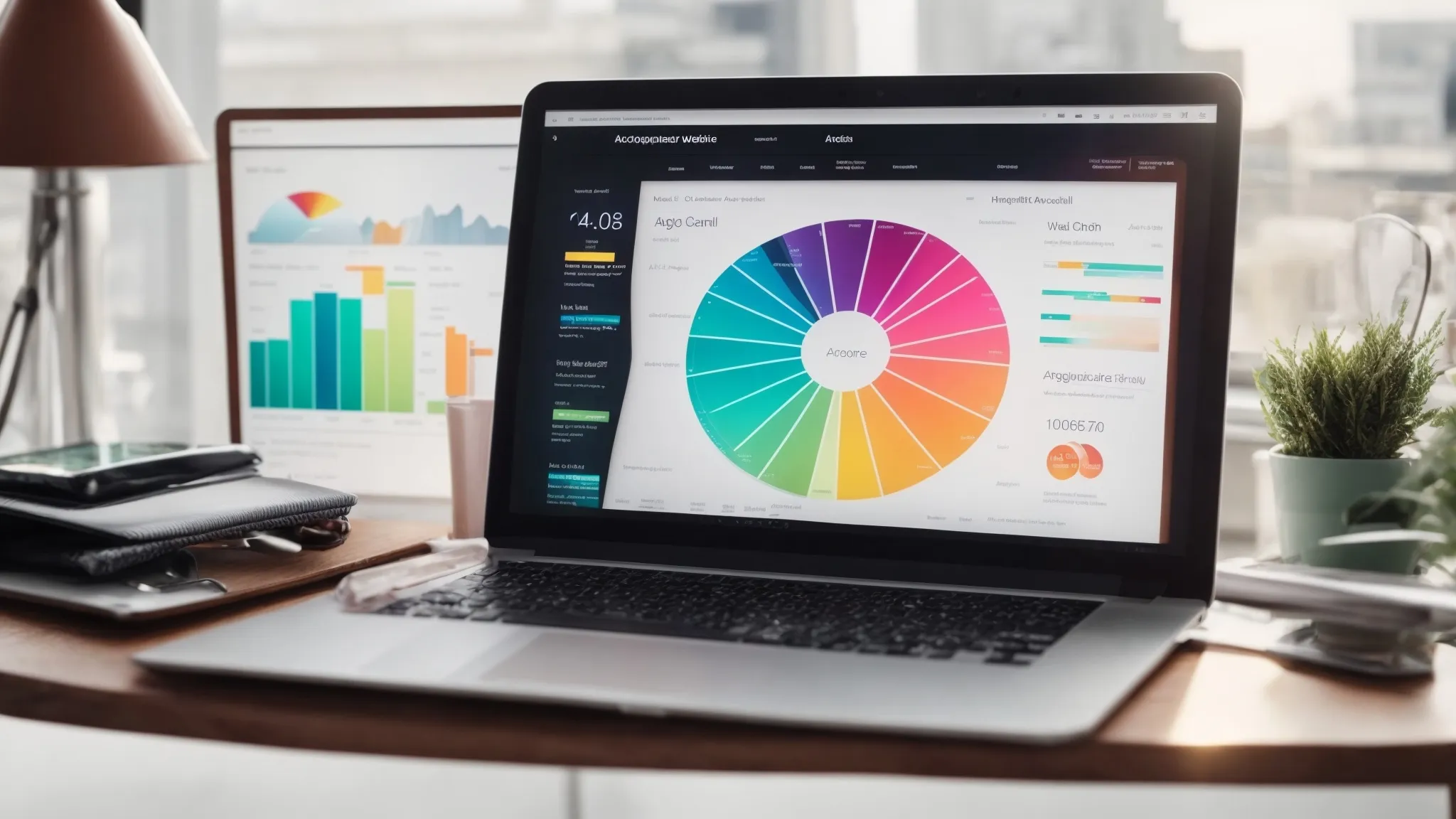Understanding Google HCU: Recovery Tips
Understanding and Overcoming the Google Helpful Content Update (HCU) The Google ‘Helpful Content Update’ (HCU) has been the recent buzz in the domain of digital marketing and […]
Understanding and Overcoming the Google Helpful Content Update (HCU)
The Google ‘Helpful Content Update’ (HCU) has been the recent buzz in the domain of digital marketing and SEO best practices.
This core algorithm update has had a significant impact on search engine traffic, transforming the landscape for site owners, webmasters, and businesses globally.
As the name suggests, the update focuses on prioritizing ‘helpful’ content and optimizing Google search rankings for the same.
Understanding and adapting to this change is crucial for anyone looking to maintain or improve their Google ranking.
Keep reading, as this information-packed post will provide a comprehensive insight into HCU and how to navigate its effects on your website’s SEO strategy.
Key Takeaways
- The Helpful Content Update (HCU) by Google Aims to Re-Rank Search Results Based on the Helpfulness and Relevance of Information Provided in the Content
- Using a Sophisticated Tool Like Search Atlas by LinkGraph Can Help Align Content Marketing Strategies With Google’s Algorithm Updates and Improve Google Ranking
- The HCU Impacts the Relevancy of Content, the Organic Search Traffic to a Site, and the Ranking of Product Reviews
- ‘Helpful’ Content Is Unique, in-Depth, Actionable, and Provides Added Knowledge to Readers, While ‘Unhelpful’ Content Is Shallow, Incomplete, or Misleading
- Adjusting Content Strategy Post-Hcu Involves Offering Comprehensive Insights, Including Authentic Data and Expert Opinion, and Keeping Content Fresh With Regular Updates
Decoding the Google Helpful Content Update (HCU)

With the introduction of the Helpful Content Update (HCU) by Google, search engine optimization is getting increasingly complicated. The update targets to re-rank search results based on the helpfulness and relevance of information provided in the content.
The HCU, a major core update, leverages machine learning models and Google’s own set of classifiers to evaluate content. This approach allows Google to determine whether the content being shared is useful to a searcher and meets their intent, according to the SEO best practices.
In light of these changes, using a sophisticated tool like Search Atlas by LinkGraph becomes imperative. Such an optimized content system helps you align your content marketing strategies with Google’s algorithm updates to improve your Google ranking.
Unfortunately, this is still a grey area for most webmasters as Google doesn’t share exact processes in their search algorithm. In such cases, leveraging AI content while keeping the freshness algorithm of Google in mind can offer a competitive edge, positioning your web page optimally in the search traffic pool.
Impact of HCU on Website Ranking and SEO

The Google Helpful Content Update (HCU) plays a crucial role in affecting the site’s rank and overall SEO. Google, through this directive, is defining a new way for site owners to approach conent marketing while optimizing Google search rankings.
A primary aspect that the HCU impacts is the relevancy of your content. Crucially, the update aims to amplify the exposure of high-quality content that contains practical and beneficial knowledge, thus influencing page experience update.
Another resonating wave that the HCU introduces is on the site’s organic search traffic:
- The HCU, by employing its algorithm, evaluates your content for its utility and relevance to the searcher.
- It subsequently dictates its Google ranking, which can directly impact the quantity and quality of organic search traffic your site receives.
- The review content, if found helpful and insightful by the classifier, can earn a higher rank, thereby pulling more search traffic.
Product reviews, particularly, witness significant changes post the implementation of the product review algorithm update. Reviews that are more comprehensive, original, and contain expert advice are perceived to be of superior quality by the HCU.
Defining and Distinguishing ‘Helpful’ vs ‘Unhelpful’ Content

The line distinguishing ‘helpful’ from ‘unhelpful’ content was drawn more clearly after Google’s Classifier Update. This was a direct result of Google’s aim to enhance users’ experience by promoting most relevant and valuable content. As such, the criteria for what makes a high-rating content piece have changed significantly.
‘Helpful’ content, as per the new definitions, is the one that is unique, packed with in-depth insights, and is actionable. It should answer the users query exhaustively while providing them with added knowledge. The content should also demonstrate proficiency in the topic it covers and be engaging to the reader.
On the other hand, ‘unhelpful’ content is that which offers shallow, incomplete or misleading information. The terms that help distinguish ‘helpful’ and ‘unhelpful’ content are:
- Lorem ipsum text, non-specific content, and hesitant information are considered unhelpful.
- Helpful content provides concrete conclusions, in-depth analysis, and is beneficial to the reader.
- Information sourced from questionable resources or without appropriate accreditation is deemed unhelpful.
Remember though, not all content will fall clearly into these categories. Gray area content exists and it is here where experts and tools like Search Atlas can provide the utmost value.
How to Adjust Your Content Strategy Post-Hcu

The introduction of the Helpful Content Update (HCU) necessitates a revisit and, in many cases, a complete revaluation of your current content strategy. One needs to revisit SEO content and redefine the web content by encompassing more precise and detailed answers to user’s queries. The key to unlocking an advantageous position in SERP is becoming increasingly tied to relevancy and detailed exploration of the topic.
Even though feeling overwhelmed is completely normal, there are some core principles that can guide you in adjusting your content strategy:
- Ensure your content offers comprehensive, deep-dived insights instead of fragmented or shallow coverage.
- Include authentic, well-researched data and expert opinion whenever possible.
- Create content that is useful and relevant to the user’s search. Use SEO guides to maximize search engine traffic.
- Lastly, keep your content fresh with regular updates and incorporate feedback from comments. The growth of your business can rely heavily on this iterative improvement.
By heeding the product review update, you can build authentically detailed reviews including pros, cons, and comparisons to assist users in making the best choice possible. Remember, a review that is crafted meticulously and delivers helpful and decisive information stands a better chance to gain the top rank.
All in all, post-HCU, the key is to remain versatile, adaptive, and always ready to align your strategies with the latest updates. The goal should always strive to meet the searcher’s exact need, improving not just the quantity but the quality of your audience engagement.
Recovering From a Negative Impact of HCU

After Google’s Helpful Content Update (HCU), many websites have witnessed a drop in their ranking due to non-compliant content. It is essential to recognize that this is not the end and with dedicated efforts, one can recover from the adverse impact. Initial steps include identifying the issues and developing a strategic course of action.
The most immediate action would be to evaluate your content thoroughly and compare it against the guidelines stated by Google. If your content appears to be shallow, lacking in details, or not delivering sufficiently on the intent of the search query, immediate steps must be taken to rectify it.
Further, link spam update should play a significant role in revitalizing your SEO strategy. Websites should cross-check for irrelevant or poor-quality external links associated with their site. Invalid or unauthentic links can severely hamper your reputation in Google’s eyes, thereby pulling down the ranking.
Finally, using an advanced tool like Search Atlas can serve as a pivotal step in gaining your rank back. Keyword research, content optimization, and insightful analytics can drastically improve your website’s visibility. And while you are at it, remember, improvement in SEO ranking doesn’t occur overnight. Patience and consistent efforts are key to mastering SEO best practices post this core algorithm update.
Staying Updated on Future Google Content Updates

Staying ahead in the SEO game requires one to be well-prepared for future Google content updates. This means staying up-to-date with the changes in the SEO industry, focusing primarily on Google’s algorithm updates, and staying aligned to Google SEO guidelines. The goal should be to enhance your website’s rankings and gain better visibility in the digital space.
Being a part of reputed SEO and digital marketing forums, subscribing to credible SEO newsletters, and following industry leaders can provide beneficial insights into upcoming trends and changes. These platforms can bring forth data-backed insights, professional advice, and an opportunity to discuss and learn from practitioners in the field.
Google Search Central Blog and Google Webmaster account should be your go-to source of information about any changes in Google’s policies or updates. The former will provide you updates directly from the search engine, while the latter offers personalized tips for improving your website.
Just as important as staying updated is the need to experiment and adjust. The world of SEO is dynamic and calls for iterative testing, analyses, and amendments. The utilization of innovative AI content optimization tools like Search Atlas, for instance, can aid in quickly adapting to novel SEO updates, thereby ensuring a smooth transition and betterment in your overall ranking.
Conclusion
Adapting to the Google Helpful Content Update (HCU) offers an opportunity to strengthen the connection with your audience by delivering more relevant, useful, and engaging content.
The HCU directs a shift towards increased user-centricity in the digital era, thus enhancing the quality of the content available on the web.
By understanding the nuances of this update and adjusting your content strategy accordingly, you significantly improve your chances of gaining a higher rank and sustaining an authoritative status in Google’s eyes.
Ultimately, overcoming the challenges of HCU equips you for better visibility, higher organic traffic, and robust growth in the digital terrain.















































































